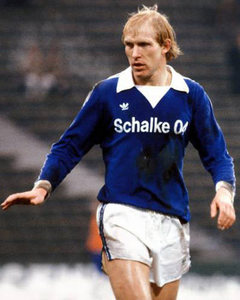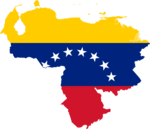Name: Rolf Rüssmann
Nickname: "Rolli"
Country:

Germany
Clubs: FC Schalke 04 (1976-1980), Borussia Dortmund (1980-1982)
Position: *
CBSide: LF/BS
Age: 26-32 years (13/10/1950)
Height: 185 cm
Weight: 78 kg
Attack: 72
Defence:
87Balance:
90Stamina:
85Top Speed:
79Acceleration:
75Response:
85Agility: 73
Dribble Accuracy:
75Dribble Speed: 71
Short Pass Accuracy:
79Short Pass Speed:
76Long Pass Accuracy:
75Long Pass Speed:
78Shot Accuracy: 69
Shot Power:
85Shot Technique: 69
Free Kick Accuracy: 64
Curling: 70
Header:
94Jump:
91Technique:
76Aggression:
75Mentality:
90Keeper Skills: 50
Team Work:
83Injury Tolerance:
ACondition/Fitness:
8Weak Foot Accuracy:
6Weak Foot Frequency:
6Growth Type: Standard Lasting
CARDS:S07: Man Marking
S08: Slide Tackle
SPECIAL ABILITIES: Sliding - Marking
Attack / Defence Awareness Card: Attack MindedINFO:Surely not the best ever German defender but Germany never had before and after him such a central defender with great combination of strength and skills. Rolf was offensive minded centre back and unbeatable in aerial battles, very dangerous scorer from flying headers, robust and athletically built with good technique and passing range, great worker and fighter, tough and uncompromising, liked movement, action and attacking bursts from defence. Rolf Rüssmann was born on 13 October 1950, in Schwelm, a town between Dortmund and Cologne in the north-west of Germany. He started his footballing career with his|home-town club, FC Schwelm, in 1962. Scouts from around the Bundesliga (the German football league) watched his progress in the then new position of libero, or sweeper, with FC Schalke 04 eventually stepping in to sign him in 1969. After an uncertain start, the young Rüssmann found his feet under the managerial direction of Rudi Gutendorf and became a regular for the Gelsenkirchen side. A successful career appeared to beckon, and with the club's results improving they eventually finished second behind Bayern Munich in the Bundesliga in 1972, as well as winning the German Cup in style, thrashing Kaiserslautern 5-0 in the same year. The fairy tale, however, came to an abrupt end when the DFB investigated widespread match-fixing allegations. The investigation rocked the whole of West German football. When it was over, more than 50 players from seven clubs (Cologne, Hertha Berlin, Stuttgart, Schalke, Bielefeld, Duisburg and Braunschweig), as well as two coaches and six officials, were found guilty. All were fined, suspended, or in many cases banned for life, even though most were pardoned as early as January 1974. This number included Rüssmann and Klaus Fischer, future internationals, and Reinhard "Stan" Libuda, who had been a member of the 1970 World Cup squad. The clubs were also heavily fined. Despite the penalties being commuted to bans, the scandal had a profound effect on Schalke 04, who might have become one of the dominant Bundesliga teams of the 1970s. The club itself had been accused and was found guilty of being bribed by Arminia Bielefeld for fixing a game, which Bielefeld won 1-0. Initially, Rüssmann and seven of his team-mates denied the allegations under oath. In 1976, they were found guilty of perjury. As a consequence, Rüssmann and his colleagues were handed another heavy fine. Schalke subsequently gained the nickname of "FC Perjury" among opposing fans. Following the ban, Rüssmann followed others and went abroad. He found himself at the Belgium club FC Brugge temporarily before returning to his beloved Schalke in 1974, where he remained until 1980. Then amid much anger, a cash-strapped Schalke sold him to their bitter rivals Borussia Dortmund. He played 149 games for them and scored 18 times, remaining there until he retired in 1985.
For Rüssmann, a respected youth international for West Germany and on the verge of a debut for the senior side in 1971, the Bundesligaskandal [Bundesliga scandal] was a huge blow and he would have to wait many years for a reprieve. It was not until 1977 that the Deutscher Fußball-Bund (DFB, Germany's equivalent of the Football Association) eased their restrictions about appearing for the national side for players involved in the scandal. As a result, the national coach, Helmut Schön, gave Rüssmann his chance against Yugoslavia. Steady performances made him a regular and secured him a place in the squad for the 1978 World Cup in Argentina. Having negotiated the first group stage easily enough, it was their final second-stage group match that was to cause huge embarrassment at home and ultimately see their early departure from the tournament. The West Germans needed to beat Austria, a once proud footballing nation, who they had not lost to since 1931. Initially, little appeared to have changed, with Germany taking the lead in Cordoba. Although Austria scored through an own goal and then took the lead, parity was restored within a minute. A draw looked likely, as did progression to the last four. But in the 88th minute, Hans Krankl scored his second goal to make the score 3-2, a result which ultimately knocked the Germans out. German newspapers saw it as a "disgrace", dubbing it "the Shame of Cordoba". Rüssmann would only play once more for his country. Rüssmann took a break and then in 1987 returned to FC Schalke as general manager for six months. In April 1990 he went to Borussia Mönchengladbach as a successor to the long-serving Helmut Grashoff until a poor run of results saw him sacked in 1998. His final senior position was as general manager with VfB Stuttgart from February 2001 until his replacement in December 2002 by Felix Magath. In later life, Rüssmann described the match-fixing scandal as "the lousiest business of my life" and pondered where his career might otherwise have taken him. He made a total of 453 appearances in the Bundesliga, scoring 48 goals, and made 20 appearances for his country, scoring once. He remains third in Schalke's all-time appearance List. Rüssmann died in 2009 following a two-year battle with prostate cancer, just short of his 59th birthday.


 Germany
Germany